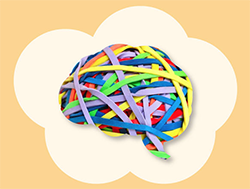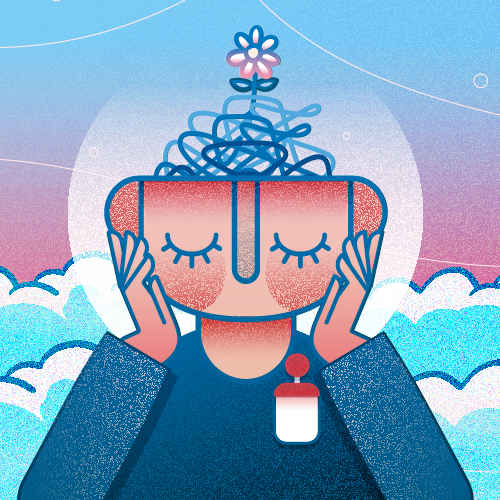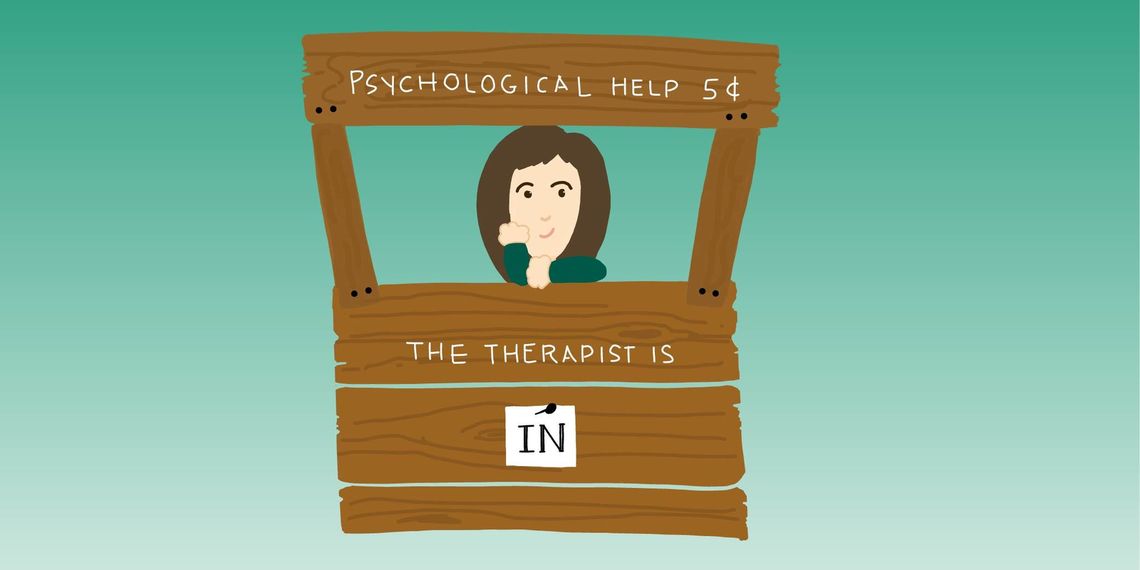Learn More

The brain is a highly active and malleable learning machine. Knowing that, we can develop strategies to improve well-being, like engaging in activities that are new and challenging.
Dear Practical Psychologist,
I’ve been struggling at work and at home lately–feeling stuck and easily frustrated. I’ve always been really successful, so this is hard for me. Something isn't working. What should I do?
Sincerely,
Struggling to cope
Dear Struggling,
elf-compassion, or being kind to yourself, is the foundation of any lasting change. If that word is hard for you to digest, you’re not alone. I recently attended a conference where a speaker proposed doing away with the term “self-compassion” in favor of a new phrase that they thought would be easier to understand: “foundational compassion.” Whatever you call it, being aware of how you talk to yourself is key to living a healthier, happier life.
Who is the person you want to be?
When I first meet with someone, we discuss who they want to be—as a parent, employee, spouse, friend, person, etc. We also talk about what gets in the way of them living in such a manner. Often times, the person identifies both internal and external factors that interfere, like the tendency to overthink things or not having enough time to accomplish a task. Another common interference is self-criticism.
Mindfulness in Medicine Toolkit

Click here for a list of resources you and your team can use to practice mindfulness and increase your well-being.
For many, self-criticism goes back a long way, perhaps to childhood experiences or in college, where that behavior may have been helpful if it made you study harder and achieve more. But a behavior that served you well at one time can become destructive over time. For instance, we focus so much on perfection. When we mess up, we often beat up ourselves. “Oh, here I go again. I should know this by now, I’ll never be able to be any better.” We think that when we make a mistake or don’t meet our own expectations that we’re a failure.
The challenge for most of us is learning to let go of self-criticism in favor of being kinder toward ourselves. Some of us may even fear that giving up self-criticism will lead to being less motivated and less successful. For individuals experiencing this fear, I encourage them to reflect on the following questions. How’s self-criticism working out for me? Is it taking me more toward the person I want to be or is it getting in the way? If it’s getting in the way, I suggest experimenting with self-compassion.
A simple strategy to build self-compassion
-
Identify a self-critical thought. Common criticisms include, “I’m so stupid,” “I’m not good enough,” “I’ll never be as good as [name of person].”
-
Then, try putting the phrase, “I’m having the thought that _______” in front of the criticism. For example, “I’m having the thought that I’m not good enough.” See what happens. For some of you, this will alter your perspective. Doing this will give you just enough space to decide whether you’re going to continue with the thought, reframe it, or simply move on.
-
If you catch yourself arguing with your thoughts during this exercise, such as "But it is true, I am a failure," simply put "I'm having the thought that _______" in front of those thoughts.
-
Try it for a week. You can practice a couple of ways. When you catch yourself being self-critical , try putting “I’m having the thought that ______” in front of the criticism. You can also experiment with putting “I’m having the thought that _______” before any of your thoughts. Both methods will train your brain to respond to your thoughts instead of react to them.
I recently met with a physician who saw me after trying this strategy for a week. I always warn people that these steps are going to sound overly simple. He said “You know, it is really simple, but it’s really profound.” Our brains won’t always let us get rid of a thought, but there is a lot of power in recognizing a thought, labeling it a thought, and acknowledging that it does not define you.
Give it a try and let me know how it works for you.
—The Practical Psychologist
The Practical Psychologist is Megan Call, PhD. Megan is the Associate Director of the University of Utah Health Resiliency Center, Clinical Assistant Professor in Education Psychology and Adjunct Professor in Health Promotion and Education. She has research and clinical interests in promoting resilience and well-being among health providers, with a specific focus on embracing vulnerability and discomfort, incorporating informal mindfulness into everyday practice, improving communication and relationship skills among providers, and addressing systematic change.
Mindful Self-Compassion Meditation with Trinh Mai
Megan Call
We can be so hard on ourselves. Contributors from the Resiliency Center share how self-compassion, the practice of being kind and fair to yourself during times of stress, can improve your well-being and resilience.
Well-being expert and physician David Sandweiss explores the art of mindful breathing. By incorporating just three conscious breaths into our day, we can transform the way we experience the world, offering a path to clarity, calm, and a deeper connection with the present moment.
Whether we are navigating a patient death, a negative or unexpected outcome, a medical mistake, or a challenging interpersonal conflict, RAIN is an easy-to-remember tool that provides an opportunity to cultivate compassionate attention to our suffering, enabling us to respond effectively.
